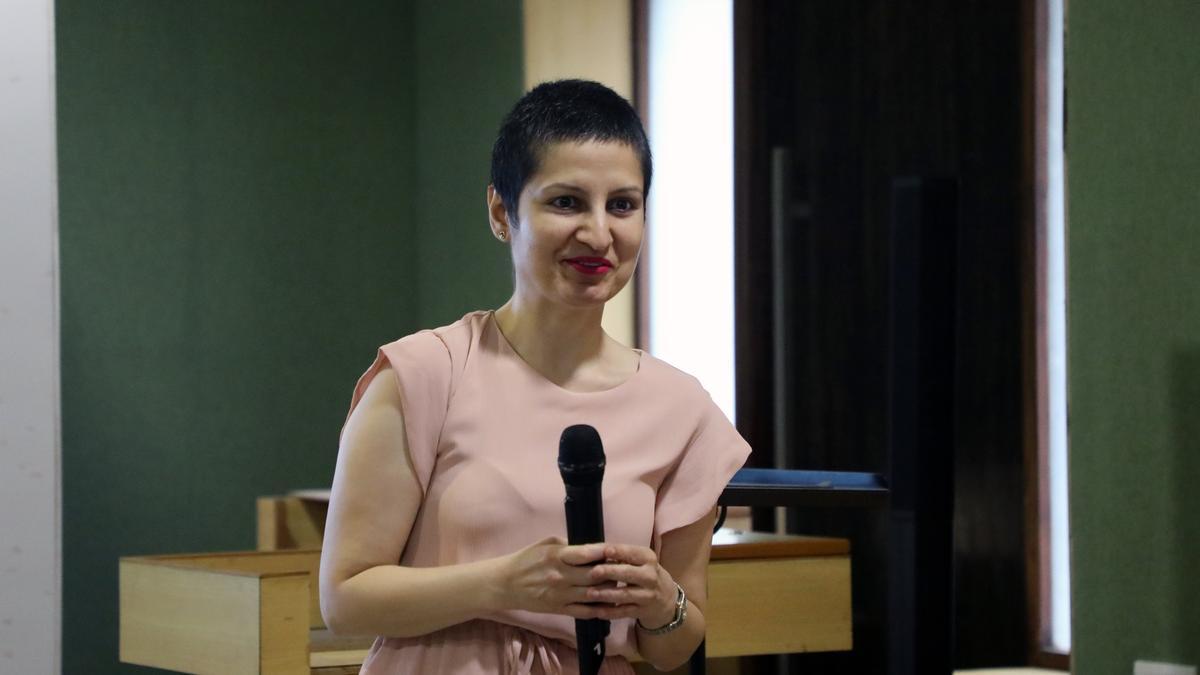
The resonant poetry of Vallalar, a revered 19th-century Tamil saint, has echoed through the halls of Carnatic concerts and spiritual gatherings but seldom ventured into the realms of mainstream music. Thus, when the mellifluous timbre of Sanjay Subrahmanyan intertwines with lyrics embodying a universal message of peace and love in genres far from the Carnatic tradition, listeners are presented with an enchanting and novel experience. This innovation is the heart of Anbenum Peruveli, a groundbreaking music project unveiled recently in the city.
A transformation occurs as Sanjay Subrahmanyan, a heavyweight in the classical realm, sheds his traditional skin to delve into the realm of rock, jazz, and blues. under the guidance of composer Sean Roldon, the ancient Tamil verses of Vallalar gain a contemporary voice. Envisioned by the Onemai Foundation and propelled by A.S. Panneerselvan, the pioneering project, under the patronage of Vignesh Sundaresan, has birthed six spellbinding audio tracks accompanied by evocative music videos.
At the project’s core, rock commands a powerful presence, yet the music also weaves in Celtic and Jazz/Blues influences, manifesting the transcendent spirit of Vallalar’s verses. Subrahmanyan’s vocals, deliberately tempered to mask his classical prowess, provide a cohesive force that unites the diverse sonic tapestry curated within this album.
Sean Roldon, when addressing the prominent use of rock, hints at the genre’s intrinsic honesty and vigor: “Rock is spirited music which is non-pretentious. It captures a raw aesthetic; it’s about making oneself vulnerable and genuinely connecting. Vallalar’s lyrics found a new dimension within this space. Initially, the idea raised eyebrows, but it wasn’t long before everyone involved recognized its potency in the musical blend,” explained Roldon.
“I aspired to embrace a different sound to see if it resonates,” remarked Sanjay, lending his voice to the project’s adventurous spirit.
The album’s compositional elements are strikingly evident, showcasing both consistency in theme and noticeable diversity. Tracks such as Ithu nalla tharunam and Arutperum jyothi stay true to the rock ethos, while Kallarkkum offers a requiem imbued with Celtic nuances, and Vennila seduces with the sensibilities of classical Jazz/Blues. The piece Orumayudan boldly presents a raga-based fusion (Kapi), rounding out the album’s eclectic mix. The supporting orchestral sounds from guitars, bass, drums, the elaborate string and Celtic folk arrangements, and an array of other Western folk instruments intriguingly enrich the inherent beauty of the Tamil language.
Sean played a pivotal role in ensuring the Carnatic elements remained as subtle undercurrents rather than dominating currents. Sanjay noted, “Sean’s proficiency in Carnatic music was indispensable in this process. With an adaptable mindset, the task was far from arduous.” Nevertheless, he acknowledged that his classical training did influence certain musical passages.
Sean, taking a broader view on music, said, “To me, music has transcended labels such as ‘Carnatic’ or otherwise. I express my emotions without being confined by genre. There’s a progressive vision brewing, especially for Tamil music.”
Rafiq Ismail’s directorial prowess in the music videos adds a layered visual experience to the audio one, featuring dancers like Nithya Pillai and offering audiences the opportunity to immerse themselves fully in the composer’s vision. Subrahmanyan’s artistry is palpable, even as he delivers predominantly straight notes, enabling listeners to savor the delicate inflections and lyrical depth of the Tamil language.
Queried on the album’s melodic highlights, Sanjay admitted to many but confessed a particular fondness for the track Vennila, where Sean introduced him to an entirely new vocal style that he immensely enjoyed. As for Sanjay’s future endeavors outside the Carnatic circuit, he expressed optimism, “Hopefully yes. I’m exploring new spaces and eagerly anticipating where this journey leads.”
In an era where musical boundaries are increasingly blurred, Anbenum Peruveli stands as a testament to the enduring power of pure expression and the potential for transformation when ancient wisdom meets contemporary soundscapes.










